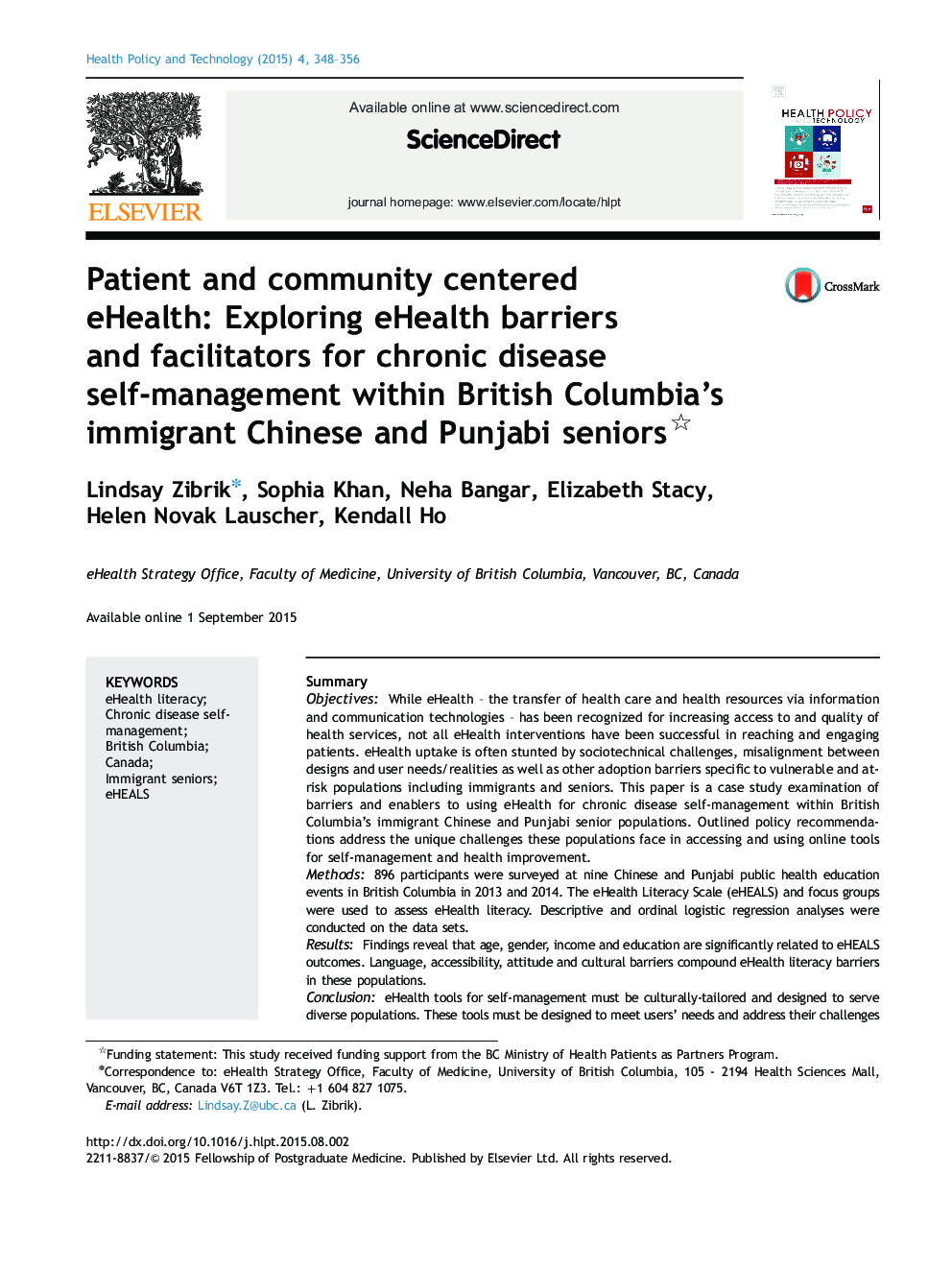| Article ID | Journal | Published Year | Pages | File Type |
|---|---|---|---|---|
| 3327325 | Health Policy and Technology | 2015 | 9 Pages |
•eHealth adoption data examined within BC’s immigrant Chinese and Punjabi seniors.•eHealth tools must address language, culture, accessibility and literacy barriers.•Engage users in the design of eHealth tools to develop appropriate, usable tools.•Engage cultural experts in content development to promote eHealth uptake.•Partner with community organizations to build eHealth skills.
SummaryObjectivesWhile eHealth – the transfer of health care and health resources via information and communication technologies – has been recognized for increasing access to and quality of health services, not all eHealth interventions have been successful in reaching and engaging patients. eHealth uptake is often stunted by sociotechnical challenges, misalignment between designs and user needs/realities as well as other adoption barriers specific to vulnerable and at-risk populations including immigrants and seniors. This paper is a case study examination of barriers and enablers to using eHealth for chronic disease self-management within British Columbia’s immigrant Chinese and Punjabi senior populations. Outlined policy recommendations address the unique challenges these populations face in accessing and using online tools for self-management and health improvement.Methods896 participants were surveyed at nine Chinese and Punjabi public health education events in British Columbia in 2013 and 2014. The eHealth Literacy Scale (eHEALS) and focus groups were used to assess eHealth literacy. Descriptive and ordinal logistic regression analyses were conducted on the data sets.ResultsFindings reveal that age, gender, income and education are significantly related to eHEALS outcomes. Language, accessibility, attitude and cultural barriers compound eHealth literacy barriers in these populations.ConclusioneHealth tools for self-management must be culturally-tailored and designed to serve diverse populations. These tools must be designed to meet users’ needs and address their challenges related to language, culture, accessibility, and literacy levels. Partnership with community organizations is an appropriate platform to facilitate eHealth driven knowledge translation within multicultural communities.
